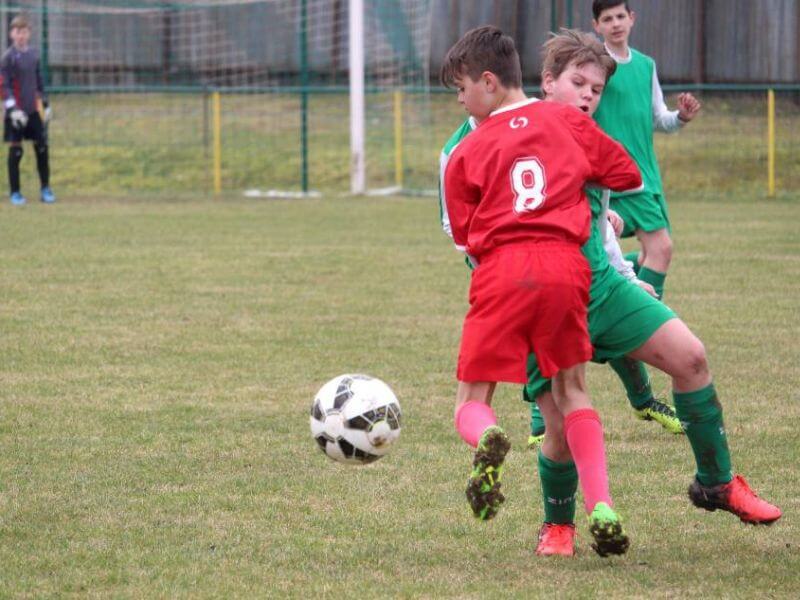What is foul in soccer ? Soccer, also known as football, is one of the most popular sports worldwide, with millions of fans and players. While it’s a beautiful game, it’s not always a fair one. That’s why it’s essential to understand fouls in soccer, which are violations of the rules that can result in penalties or free kicks.
In this ultimate guide, we’ll explore what constitutes a foul in soccer, the types of fouls, the consequences of committing a foul, strategies for avoiding fouls, and more. Whether you’re a player, coach, or fan, understanding fouls in soccer is crucial for enjoying the game and improving performance.
So let’s dive in and explore what fouls in soccer are all about!
Definition of a Foul in Soccer
In soccer, a foul is a violation of the rules that results in a free kick or penalty kick for the opposing team. According to the Laws of the Game set by the International Football Association Board (IFAB), a foul occurs when a player “commits an offense against an opponent within the field of play.”
Examples of Common Fouls in Soccer
Some of the most common fouls in soccer include:
- Tripping an opponent
- Pushing an opponent
- Holding an opponent
- Sliding into an opponent
- Jumping into an opponent
- Kicking an opponent
- Charging into an opponent

Differences Between Fouls and Other Rule Violations in Soccer
It’s essential to understand that fouls are not the only type of rule violation in soccer. Other infractions that result in stoppages of play include:
- Handball: When a player touches the ball with their hand or arm intentionally or unintentionally.
- Offside: When an attacking player is beyond the last defender when the ball is passed to them.
- Dangerous play: When a player acts in a manner that may endanger themselves or another player.
While these types of violations result in stoppages of play, they don’t necessarily result in a free kick or penalty kick unless they are committed in a dangerous or reckless manner. Fouls, on the other hand, always result in a free kick or penalty kick for the opposing team.
WHAT IS A FOUL IN SOCCER?
A foul is an unfair act by a player that interferes with the active play of the game. Punishment for a Foul Involves Awarding a Free Kick to the Opposing Team.
The referee determines whether a foul has occurred and what kind of punishment should be given, depending on the severity of the infraction.
If a player commits more than one minor foul in succession, they are automatically sent off and their team may suffer penalties from this decision as well (such as losing possession of the ball).
Knowing when to commit or avoid committing a foul can greatly impact how successfully your team plays overall – learn about some common rules here.
A Foul Is an Unfair Act by a Player
A foul is an unfair act by a player on the field of play that can lead to a penalty or red card. It’s important to be familiar with the rules so you know when and how to call a foul.
Fouls happen all over the pitch, but they’re most common in midfield and at the back. Remember: if you make contact with an opponent without intention to injure, it’s usually not considered a foul.
Keep your cool when things get heated on the field – no matter what happens, don’t lose your temper.
A Foul Interferes with the Active Play of the Game
A foul interrupts the active play of the game, and can lead to a loss for your team. It is important to avoid committing fouls in order to maintain control of the match.
The referee will call out specific fouls that need attention, so be aware of what they are looking for when you are playing soccer. Fouls can also result in punishment from the officials- this could mean a red card or a penalty kick depending on how severe it was deemed to be by the refs .
Make sure you know which players are allowed to commit fouls, and follow their instructions carefully if you do happen to commit one.
Punishment for a Foul Involves Awarding a Free Kick to the Opposing Team
When a player commits a foul, the referee will give out an orange card and point to the spot where the infraction occurred. After receiving a yellow card, players are typically given additional instruction from their coaches before returning to play.
A red card carries more severe penalties and could result in suspension from games or even dismissal from the team altogether. If the opposing team is awarded a free kick as a result of your foul, make sure you’re ready for what comes next.
Fouls can be costly for both teams – learn about all of your options when it comes to punishment so that you don’t end up costing your side dearly on the field.
The referee determines whether a foul has occurred and what kind of punishment should be given
A foul in soccer is considered any illegal action that disrupts the flow of the game.
The referee has a lot of discretion when it comes to determining whether or not a foul has occurred and what kind of punishment should be given.
Fouls can lead to penalties, which may result in an opponent scoring a goal or giving your team possession away on the counterattack. Knowing how to spot and deal with fouling situations can help you stay in control of the match throughout its entirety.
Always try to keep calm if you are called for a foul – knowing your rights will help make things go more smoothly on the field.

A player who commits more than one minor foul in succession is automatically sent off
A foul in soccer is a minor infraction that can lead to a player being sent off the field. It’s important for players to know the rules so they don’t get penalized unnecessarily.
There are different types of fouls, and each one has its own consequences. If you commit more than one minor foul in succession, be prepared to go back onto the bench or leave the game altogether.
WHATS CONSIDERED A FOUL IN SOCCER?
The Laws Of Soccer Govern Every Action Taken On The Playing Field, Including Fouls. There Are Different Types Of Fouls That Can Result In A Penalty Or Yellow Card Being Issued To An Opponent.
Roughly Handling Players Can Mean You’re Charged With Play-acting, Which Is A Serious Offense In Soccer. Jumping And Spiking Players Could Get You Sent Off, As Can Choking Or Kicking Others Players .
Holding, Choking And Kicking Other players May Lead To a Red Card Being Issued.
WHAT ARE THE 9 MAJOR FOULS IN SOCCER?
There are nine major fouls in soccer that can result in a penalty, each with its own specific penalties. Players must handle the ball correctly at all times to avoid getting penalized and incur negative consequences.
Kicking, striking, tripping and other physical actions must be avoided when trying to make a play with the ball – even if it means defending against an opposing player head-on. Charging an opponent is not allowed unless done for defensive purposes – otherwise you will be penalized severely.
Any unsporting behavior including verbal abuse or throwing objects onto the pitch from stands can also get you sent off the field.
Above is information what is foul in soccer. Hopefully, through the above content, you have a more detailed understanding of what is foul in soccer .Thank you for reading our post.









